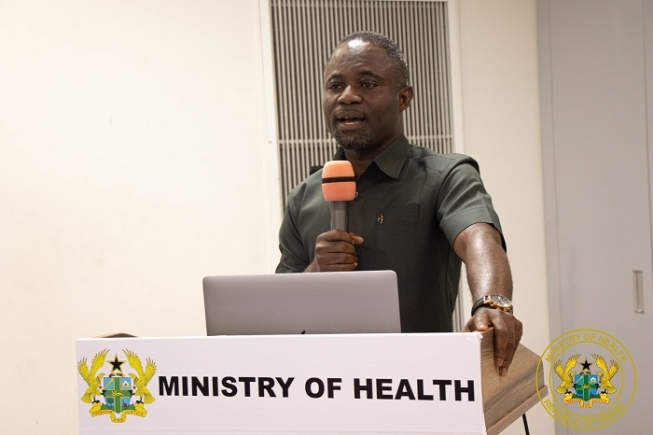Health Minister Kwabena Mintah Akandoh has claimed that the recent disruption of the Lightwave Health Information Management System (LHIMS) was an act of blackmail by the vendor, intended to pressure the government into removing key clauses from a new agreement. Speaking at the Government Accountability Series on Wednesday, October 29, the Minister explained that the new maintenance agreement between the government and the LHIMS vendor required the company to hand over data and grant the state full administrative access to the system.
However, he stated that the vendor objected to these provisions. “To avoid this disruption and the shutdown we are experiencing—despite not having a contract with the vendor at the time we took over—we indicated to them that the Ministry was ready to sign a service maintenance agreement covering the 450 health facilities,” he clarified.
“Don’t forget that the software is and was not for the state — that is why it is called LHIMS. In the agreement, we indicated that before we sign such an agreement with you, you have to hand over the data to the state and you must give us administrative access to the service. The vendor insisted that those clauses must be removed from the agreement,” he said.
According to the Minister, the government’s refusal to delete those clauses prompted the vendor to intentionally disrupt the system.
“We cannot expunge those clauses from the agreement because it is the state that must take charge of this data. So the vendor decided to switch the system off as and when he desired, and demanded what he wanted. This has gone on for more than two months, and for the past two weeks or so, the system has been completely down. If this is not blackmail, I don’t know what it is,” he stated.
Mr. Akandoh added that the government is developing a new state-owned platform — the Ghana Healthcare Information Management System (GHIMS) — to replace LHIMS and ensure national control over medical data.
The system breakdown has caused widespread delays in record-keeping and patient processing, particularly in the Ashanti Region, where many hospitals have reverted to manual operations. Patients have since expressed frustration over prolonged waiting times and slower service delivery. The Health Minister assured the public that the government remains committed to restoring and strengthening the nation’s digital health infrastructure.
Source: Isaac Appiah-Kubi


